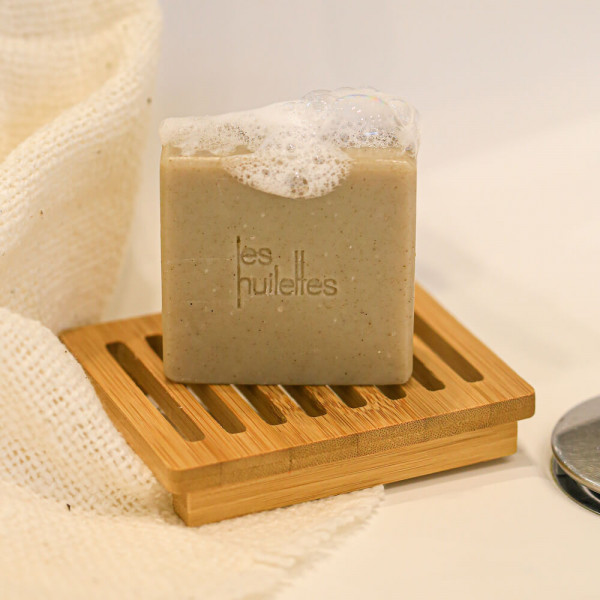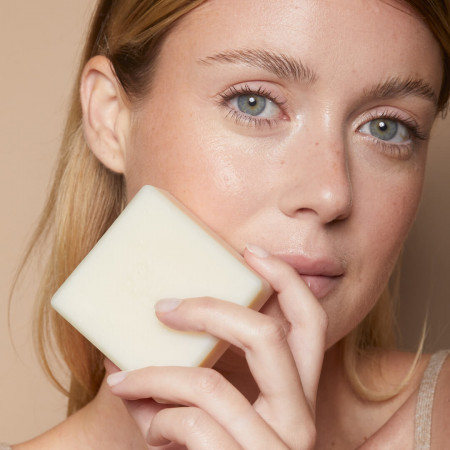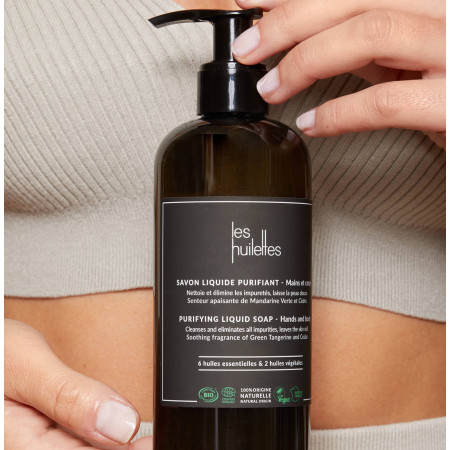
Soap-free or 100% natural soap-free cleansers?
What is the difference for the planet and for the skin?
We have often heard that the most suitable products for the skin are soap-free cleansers. And for good reason! With a pH of 5.5 and equivalent to that of the skin (we speak of physiological pH), they have the reputation of not attacking the skin and therefore of washing gently.
It is important to emphasize that these soap-free cleansers very often contain sulphated synthetic surfactants (Sodium Laureth Sulfate / Sodium Lauryl Sulfate ...)
- These surfactants from the heavy chemicals are very polluting (especially in their synthesis process)
They often come from palm oil (with the problems of deforestation that we know well). In addition, they are not biodegradable and therefore very harmful to the environment. Discharged into our municipal waters, they pollute nature and damage our soils and aquatic environments.
- These surfactants are used because they allow the cleaner to produce more lather. But in use, they are very irritating. This detergent foam will gradually sensitize and damage the surface layer of the epidermis. Less well protected skin becomes reactive.
A soap, in solid or liquid form, has a pH between 9.5 and 10.5: we speak of basic pH. Soap has less affinity with the skin, but since it does not contain synthetic surfactants, it remains less aggressive. In addition, composed of vegetable oils and sometimes enriched with excess fat, it respects the skin barrier and has nutritional properties.
- Les savons sont issus d’un procédé de fabrication naturel appelé saponification. Ce procédé consiste à produire naturellement du savon par l'action d’un alcali (potasse ou soude) sur des corps gras grâce à une réaction exothermique. Il est important de préciser que le produit fini ne contient plus de soude ni de potasse et par conséquent n’est en aucun cas agressif pour la peau. Cette fabrication totalement naturelle est absolument non polluante.
- Les savons les huilettes ont une particularité assez incroyable : ils sont bio, 100% d’origine naturelle et composés uniquement d’ingrédients naturels. Grâce aux propriétés nutritives des huiles végétales d’Olive et de Coco, le film hydrolipidique est préservé, la peau est nourrie, protégée des agressions extérieures (prévention des problèmes de peau dont l’eczéma…)
Utiliser un savon 100% naturel ?
Un geste éco-responsable efficace pour prendre soin de la planète et de sa peau.

